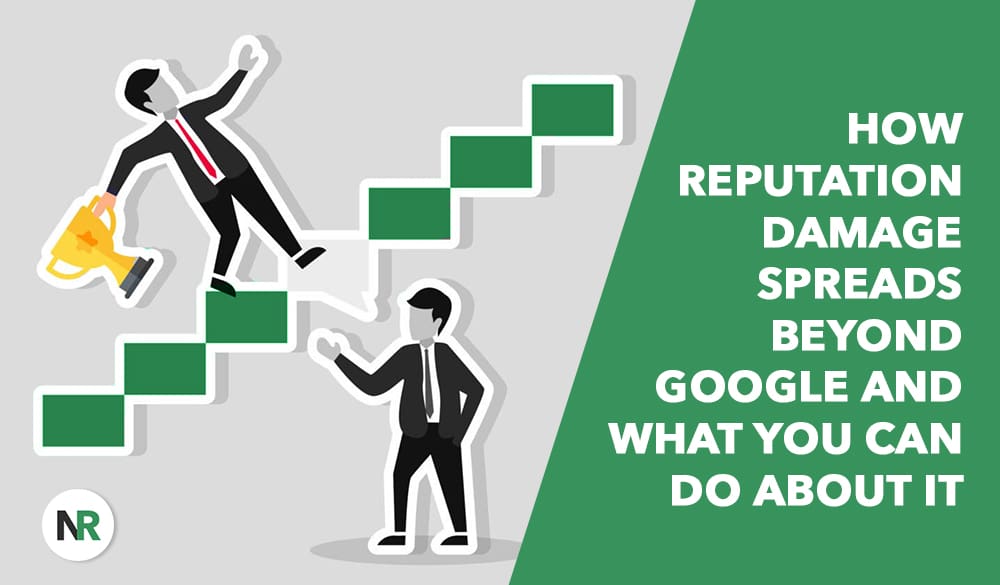Your reputation is one of your most valuable assets. A single negative review, misleading customers, or viral post can quickly spiral out of control, impacting both individuals and businesses. While many focus on Google search results, reputation damage often spreads across social media platforms, review sites, news outlets, and word of mouth.
What Is Reputation Damage?
Reputation damage occurs when negative content—whether from bad reviews, ethical violations, data breaches, or media coverage—undermines public trust. This can affect a company’s reputation, brand equity, and shareholder value, leading to lost revenue and a decline in market value.
A poor reputation doesn’t just affect online visibility—it influences stakeholder expectations, customer acquisition, financial impact, and employee retention. taking responsibility for protecting your brand reputation requires more than just risk management strategies.
How Reputation Damage Spreads Beyond Google
Many assume that reputation damage is limited to Google, but in reality, negative content spreads rapidly through various channels, including social media, online reviews, traditional news, and word of mouth.
Social Media: The Fastest Amplifier
Social media channels like Facebook, Twitter, and Instagram allow negative stories to gain traction instantly. A single bad news story shared online can be seen by thousands—if not millions—within hours. Companies must actively monitor their social media presence and respond quickly to mitigate reputational risk.
Review Sites: Trust and Transparency Matter
Sites like Yelp, Google Reviews, and TripAdvisor shape consumer perceptions. Studies show that 83% of current customers trust online reviews as much as personal recommendations. One bad reputation review, if left unaddressed, can deter potential customers and harm long-term business success. Engaging with reviews—both positive and negative—demonstrates transparency and commitment to customer satisfaction.
Word of Mouth: Offline Conversations Have Online Consequences
People talk, and their opinions influence purchasing decisions. A negative customer experience doesn’t just stay between the business and the individual—it gets shared with key stakeholders, leading to further reputational damage. Businesses that consistently deliver good reputation service can turn customers into brand advocates, helping to counteract bad reputation fallout.
News & Media: Public Scrutiny Can Be Costly
Media coverage—especially in extreme cases—can damage a brand’s credibility overnight. Companies like Boeing and United Airlines have faced significant financial losses following negative press. Once a reputation crisis hits mainstream media, recovery becomes much harder. Transparent communication, corporate governance, and ethical business practices are key to managing reputation repair and preventing further damage.
Get started with your free reputation evaluation today
The Real Consequences of Reputation Damage
Ignoring a damaged reputation can lead to lasting repercussions, including:
- Loss of Customers: Negative reviews and public criticism coming from key stakeholders erode trust, driving customers to competitors.
- Decline in Sales & Revenue: A tarnished reputation often leads to financial losses, stock price drops, and increased regulatory costs to rebuild trust.
- Hiring Challenges: Top talent is drawn to companies with a strong online presence. If your brand is associated with poor quality service or reckless disregard for customer concerns, attracting skilled employees becomes an uphill battle.
- Legal Consequences: False statements, data leaks, and misleading customers can lead to legal action, further damaging a business’s reputation and increasing risk management costs.
- Investor Trust & Market Share Decline: Businesses facing reputational damage often see a decline in investor trust, reducing capital opportunities and overall success.
How to Protect Your Reputation
Being proactive about reputation management is essential. Here’s how to stay ahead of potential damage:
Monitor Your Online Presence
Regularly track what’s being said about you or your brand. Utilize social media monitoring tools, Google Alerts, and review site notifications to catch potential issues early. Understanding reputational risk allows businesses to prevent a bad reputation from escalating.
Respond Quickly and Professionally
Negative feedback should never be ignored. Address concerns promptly with a professional and empathetic response. A well-handled complaint can turn an unhappy customer into a loyal advocate, strengthening brand credibility.
Build a Strong Online Presence
Consistently publishing positive content—such as customer testimonials, success stories, and thought leadership articles—helps push down negative content in search results and reinforces a positive reputation. Companies that emphasize intellectual capital and ethical business practices create more value for their stakeholders.
Engage With Customers to Build Trust
Encourage satisfied clients to share their experiences. Running referral programs, responding to online reviews, and maintaining open communication can foster trust and mitigate damage from negative feedback. A business’s reputation is built on strong relationships with its target audience.
Seek Expert Guidance When Needed
For serious reputation crises, working with a reputation management firm can help repair and protect your online presence. Experts in brand reputation and reputation repair can assist with search engine optimization, legal action responses, and strategic brand-rebuilding efforts.
Final Thoughts
Reputation damage isn’t just about bad news or negative reviews—it’s about trust, credibility, and long-term success. Companies and private individuals who prioritize their reputation and take proactive steps to protect it will find themselves in a stronger position to navigate potential crises.
If you need expert guidance, reputation management specialists can help you navigate the complexities of online perception, build trust with your target audience, and restore confidence in your brand.
